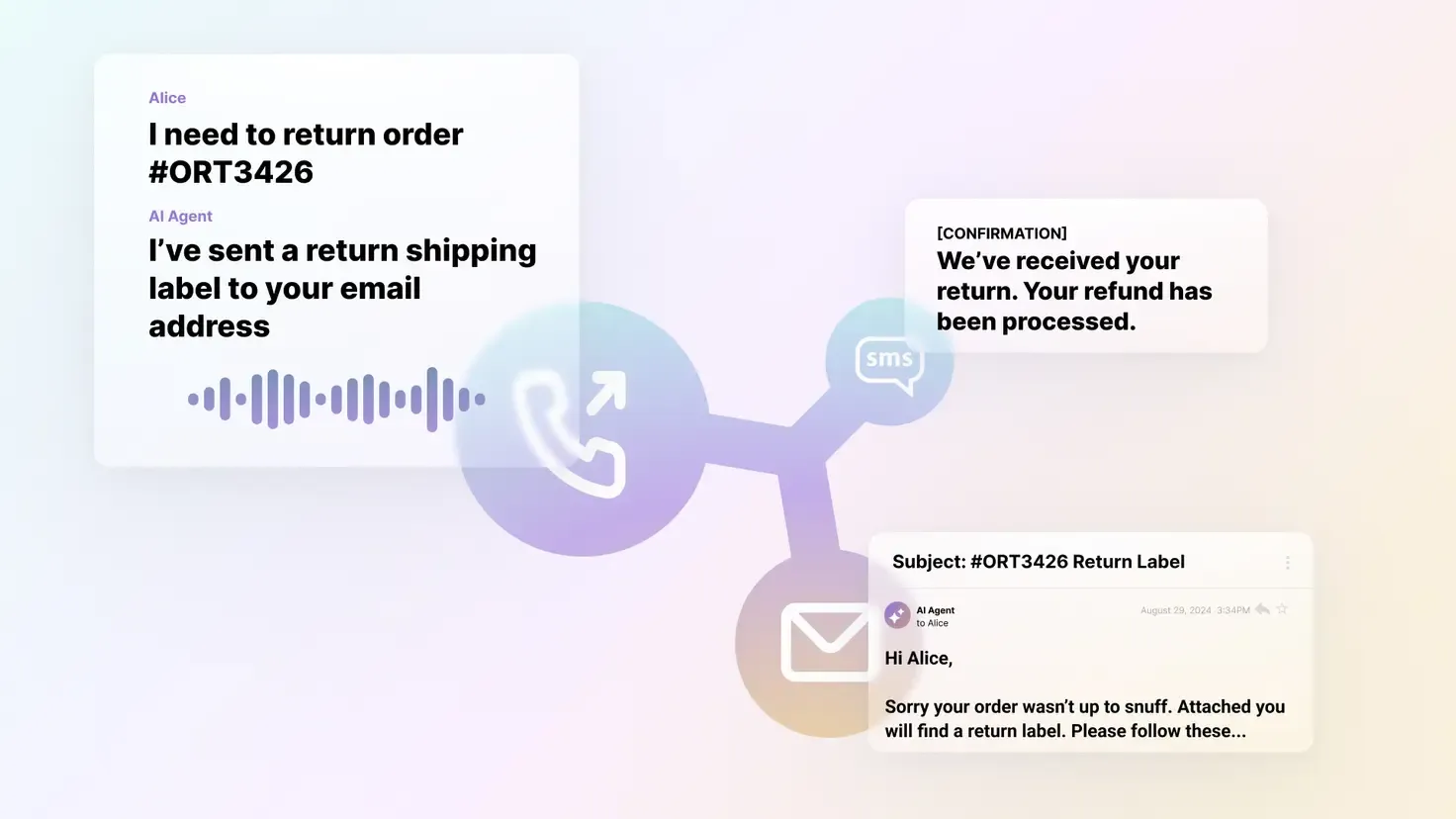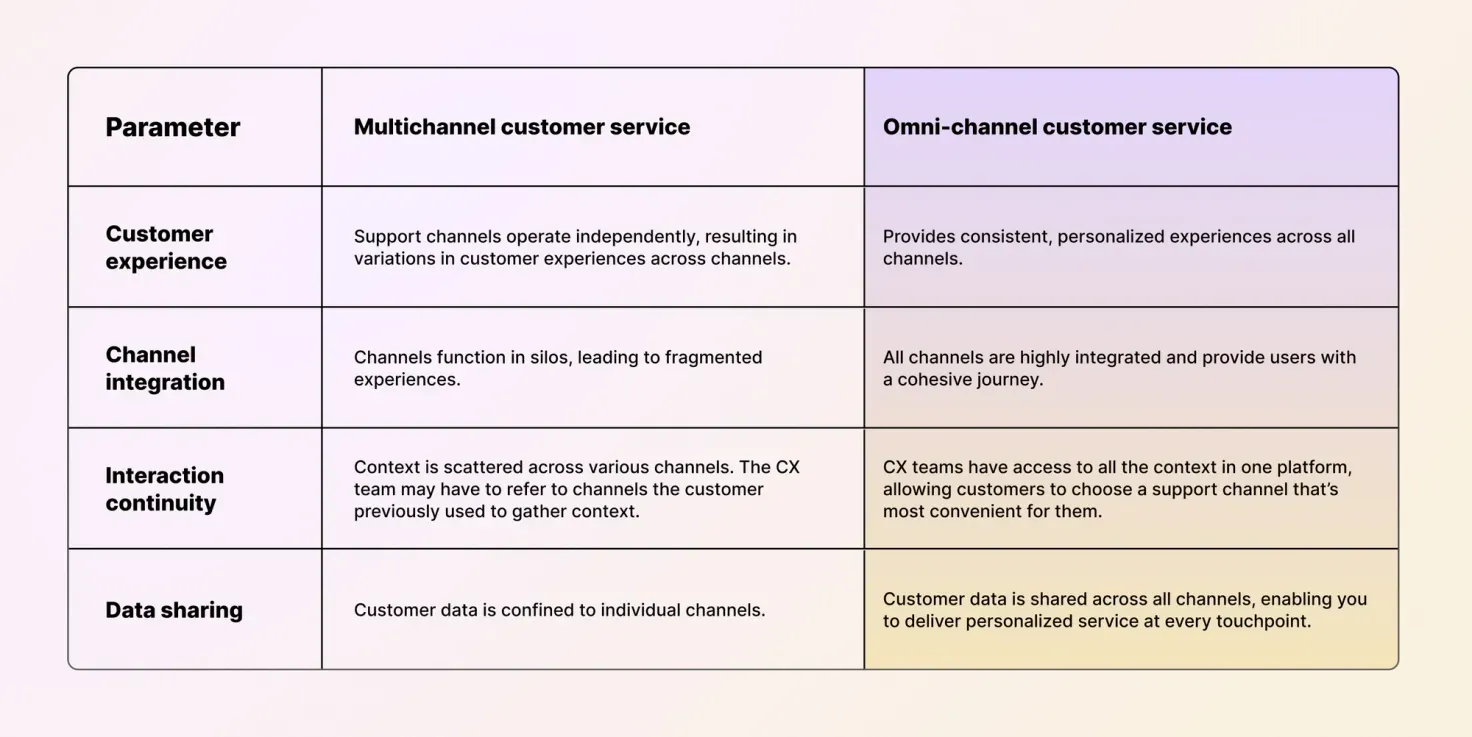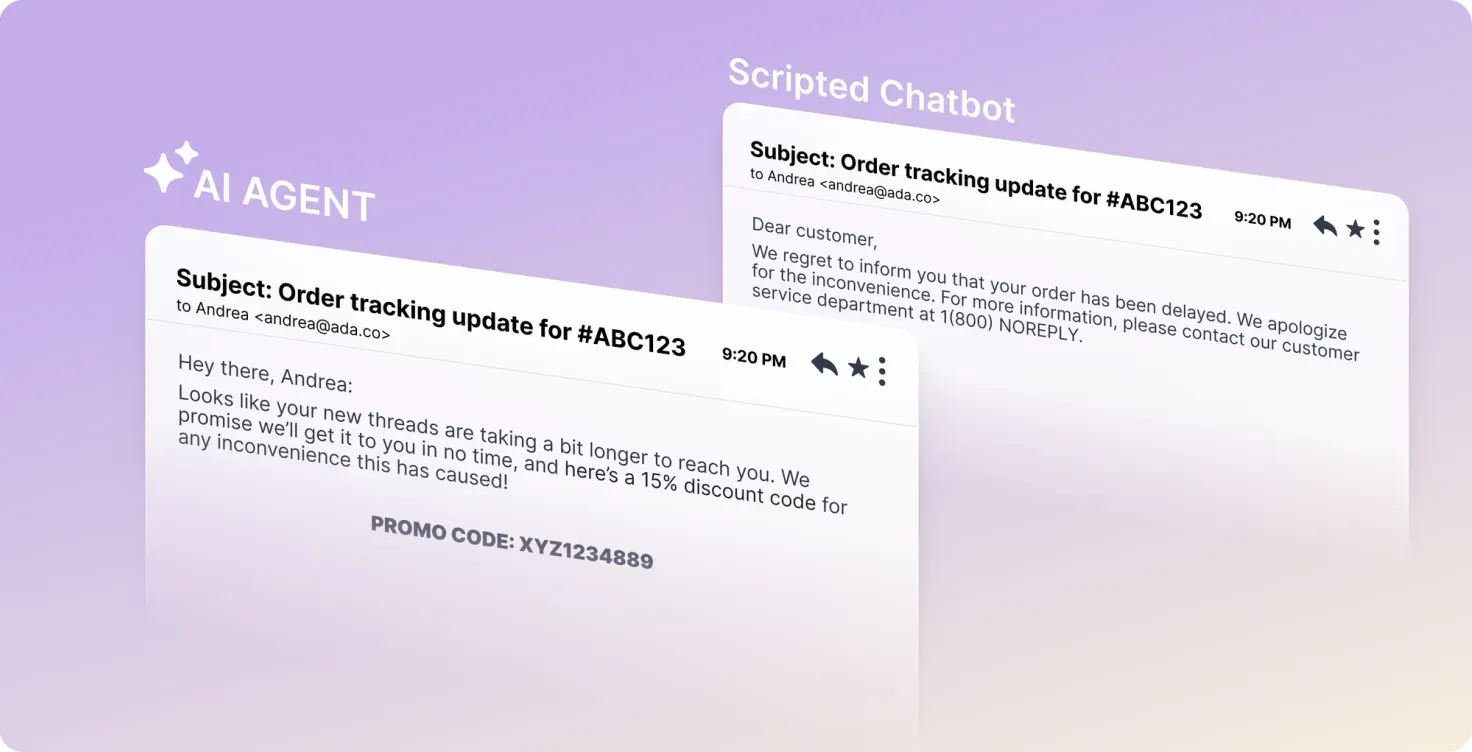
Guide to preventing, detecting, and correcting AI Agent hallucinations
Don't let AI hallucinations undermine your customer service. Get the insights you need to keep your AI Agents accurate, reliable and trustworthy.
Learn More

Customers today expect seamless interactions with businesses across multiple touchpoints. But here's the kicker: not all customer service strategies are created equal. While many companies tout their multichannel approach, the real game-changer is omnichannel customer service.
Think of it this way: multichannel is like having a bunch of separate roads leading to your destination, while omnichannel is a sleek, interconnected highway system. Sure, both will get you there, but one offers a much smoother ride.
An omnichannel customer service strategy isn’t merely about having a presence everywhere; it’s about creating a seamless experience across all channels.
Companies with extremely strong omnichannel customer engagement strategies retain an average of 89% of their customers, compared to 33% for companies with weak omnichannel customer engagement.
- Aberdeen Group
Let’s explore the world of omnichannel customer service further, including its evolution, implementation, and the game-changing benefits an AI omnichannel approach brings to both businesses and customers. Buckle up, because we're about to take your customer service strategy from 0 to 60 in record time.
Multichannel customer service means delivering support on every channel your customers use. It emerged as businesses realized customers wanted options — phone, email, live chat, pick your poison.
But here's the thing: these channels often operated in silos. Customers won’t be able to transition from one channel to another without reinitiating their conversation.
Enter omnichannel customer service. Omnichannel is an evolved version of multichannel customer service. It aims to deliver consistent experiences for customers across channels by integrating various systems.
By integrating all your different channels in-house under one AI agent, all channels benefit from the same great features, your human agents don’t repeat work, and all your insights live together in one place.
Finally, it's not just about offering multiple channels; it's about creating a unified, consistent experience across all of them. It’s the gold standard for how you treat customers in today’s business world.
Here's a quick breakdown of the specific differences between multichannel and omnichannel customer service:

A few other notable differences:
So, how do you turn this omnichannel dream into reality? Two words: artificial intelligence.
AI is the backbone of modern omnichannel customer service, acting as the central nervous system that connects all your channels and customer data. Here's what you need in your tech stack to make the magic happen:
4. Analytics platform: To keep improving, you need data. An analytics platform helps you track performance across channels and identify areas for optimization.
With these pieces in place, you're ready to automate key support channels, like:

Despite the differences between channels, the ultimate objective is to provide the same high level of service and make your customers feel supported no matter how they choose to connect. Having the tools needed to adapt the AI agent’s behavior to the specific requirements of each channel allows you to meet that objective and scale customer service operations without being limited by channel constraints.
Now, let's talk about the benefits of omnichannel, and why should businesses invest in an omnichannel customer service strategy.
87% of customers think brands need to put more effort into providing a seamless experience.
- World Metrics
Let’s put this into words sports fans will understand. Wayne Gretsky said, "I skate to where the puck is going to be, not where it has been." In the world of customer service, omnichannel is where the puck is going.
The shift from multichannel to omnichannel isn't just a trend – it's an imperative for businesses that want to thrive in the experience economy. By leveraging AI and creating a seamless, integrated customer journey across all touchpoints, companies can not only meet but exceed customer expectations.
Remember, in a world where 96% of customers say customer service is important in their choice of loyalty to a brand, can you really afford not to go omnichannel?
Explore what capabilities AI agent platforms need to unlock the omnichannel experiences customers crave.
Get the guide